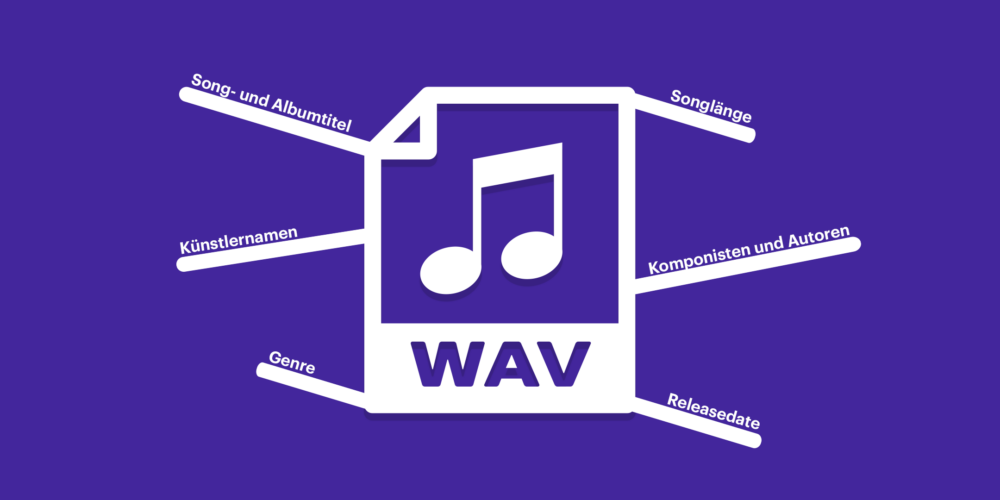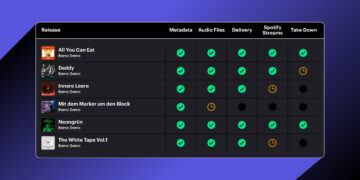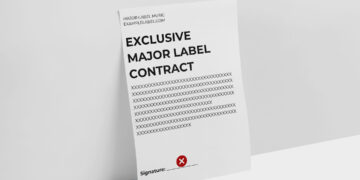Secure revenue with correct metadata

- What exactly is summarized under the term metadata
- Why metadata can also have an impact on your income
- How to proceed to secure all revenues
Hardly any musician deals with the metadata of his songs. Yet these are not only a business card, but also contribute to the artist receiving all the income he is entitled to. We’ll explain why.
The term metadata may sound abstract, perhaps unimportant to many. But it is, as Spotify puts it, “fundamental to digital music.” Metadata includes artist name, song and album title, song length, composers and authors, genre or release date, to name a few. All important information that ensures a song is released correctly. But it’s much more than that – it also affects how musicians get paid.
Credits are not only a business card for artists, they also help ensure that you don’t miss out on revenue. Again, we quote Spotify:
“Correct metadata is essential to getting paid as a songwriter.”
If the metadata stored on Spotify and other DSPs does not match that of the collecting societies, there may be problems with the payment of royalties. It is believed that 25% of all royalties are not paid out at all or are paid out to the wrong people.
How to proceed?
The first step is to agree with all parties involved on who gets how many percentages for songwriting as well as composition / production. Once you have agreed on a split, it is put in writing. The next step is to register the song with the appropriate splits with the responsible collecting society.
Finally, you have to make sure that all credits, i.e. the metadata, have been completely and correctly recorded during distribution so that they are correctly deposited with all stores. This is important for the reason that the data sent to the collecting society must match the metadata of the release in order to receive its royalty payment.
This is also why stores and most distributors are required to file civil names with composers and lyricists. When registering with the collecting society, the civil names and not merely the artist names are also provided. These data must match in order to avoid complications.
You can find out how to record credits correctly on our blog.
More information about royalties will be available soon here at iGroove Magazine. Stay tuned!











